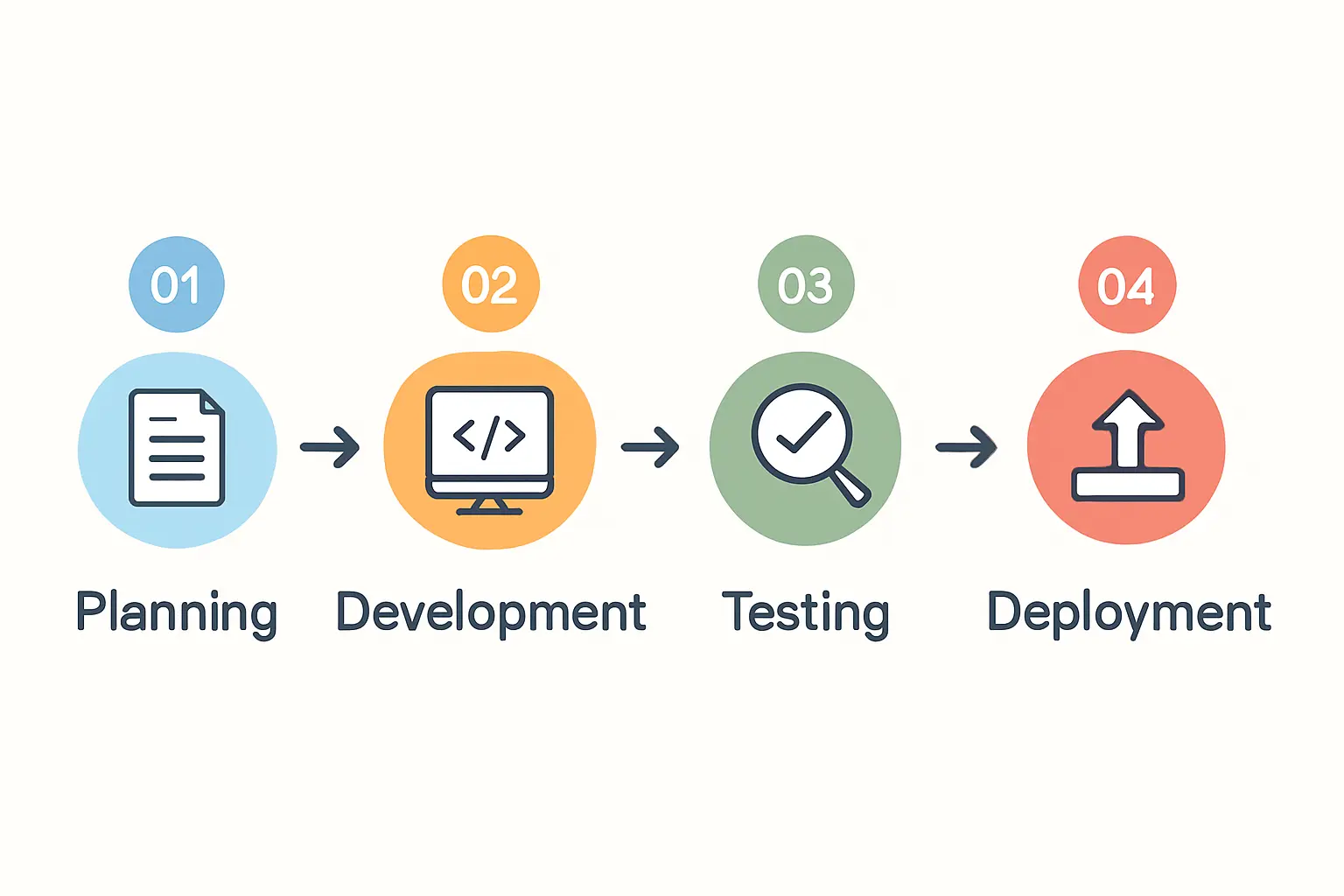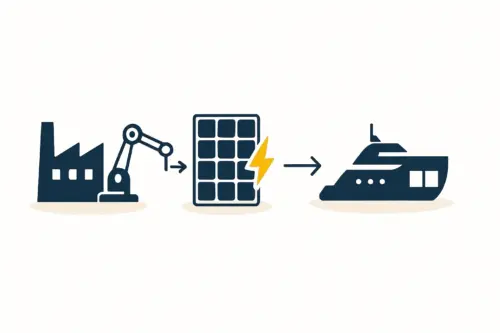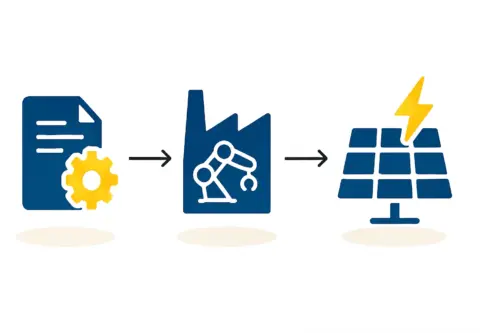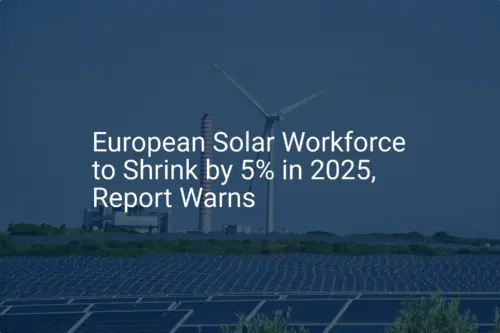Mention Monaco, and images of high-stakes finance, luxury yachts, and grand casinos likely come to mind—not industrial manufacturing. The principality’s extreme land scarcity and sky-high real estate costs seem to rule out factory production of any kind.
Yet, as Monaco pursues one of the world’s most ambitious green energy transitions, an interesting question arises: Could a solar panel factory operate successfully within its 2.1 square kilometers?
The answer lies not in traditional manufacturing but in a newer, highly specialized model: the micro-factory. This article explores the business case for a small-footprint, high-value solar module assembly line in a market where space is the ultimate luxury.
The Monaco Paradox: High Ambition Meets Severe Constraints
Understanding the opportunity begins with appreciating the unique pressures shaping Monaco’s energy policy. The principality has set formidable environmental targets: a 50% reduction in greenhouse gas emissions by 2030 and full carbon neutrality by 2050. This political will is backed by practical initiatives like the ‘cadastre solaire,’ an online tool that helps property owners assess their building’s solar potential.
However, this ambition clashes directly with the nation’s physical constraints. As the world’s second-smallest country and home to some of its highest real estate values, Monaco simply cannot accommodate a conventional, sprawling solar factory. This paradox forces a radical rethinking of what a ‘factory’ can be.
Redefining ‘Factory’: The Micro-Factory Concept for High-Value Markets
A solar micro-factory is a compact, highly automated assembly facility designed for specialized, low-volume production. Unlike a conventional plant geared for mass-market panels, it excels in precision, customization, and efficiency within a minimal footprint—often less than 1,500 square meters.
Key characteristics include:
-
High Automation: Advanced robotics handle delicate tasks like cell stringing and bussing, reducing the floor space needed for manual workstations and large teams.
-
Small Footprint: A smart, vertically integrated layout minimizes wasted space, allowing the entire production process to fit into a facility a fraction of the size of a traditional factory.
-
High-Value Output: The focus shifts from producing commodity panels to creating bespoke solar solutions. This includes Building-Integrated Photovoltaics (BIPV), custom-sized modules for superyachts, and panels designed to meet specific architectural aesthetics.
Ready to make big Profits?
The solar Industry is Booming
WE HELP NEWCOMERS to the solar industry start their own solar module production line. Customers can make BIG PROFITS by selling modules and finding investors, without wasting money and time on things they don't need!
This model transforms manufacturing from a land-intensive industry into a high-tech, service-oriented enterprise—a perfect fit for an environment like Monaco.

The Business Case: Why This Works in Monaco
At first glance, producing solar panels in such a high-cost environment seems counterintuitive. A micro-factory, however, aligns perfectly with Monaco’s unique economic and strategic profile.
-
Serving a Niche, High-Value Demand: Monaco is a hub for two key markets that require custom solar: luxury real estate and superyachts. Architects and shipbuilders need panels that are not only efficient but also aesthetically pleasing and built to precise, non-standard dimensions. A local micro-factory can serve this demand with short lead times and close collaboration. A detailed solar panel manufacturing business plan is essential for modeling the profitability of serving this specialized clientele.
-
Enhancing the ‘Made in Monaco’ Brand: The ‘Made in Monaco’ label signifies quality, precision, and luxury. A state-of-the-art facility producing technologically advanced solar modules would reinforce this brand identity, turning an industrial asset into a symbol of the principality’s commitment to sustainable innovation.
-
Gaining Strategic Autonomy and Supply Chain Security: For high-profile government and private projects, a local production facility reduces reliance on complex international supply chains and ensures a secure supply of critical components for the nation’s energy infrastructure.
-
Leveraging Government Support: Monaco’s pro-business environment and support for green initiatives create a favorable backdrop for such an investment. The project would likely attract investment from public and private funds focused on sustainable technology.

Key Considerations for a Monaco Micro-Factory
Executing this concept requires meticulous planning that addresses the principality’s unique challenges.
-
Hyper-Efficient Space Optimization: The facility design must be a masterclass in efficiency, potentially involving multi-level layouts, just-in-time inventory systems, and machinery chosen specifically for its compact design.
-
Automation and a Skilled Workforce: The factory’s core would be a lean, highly skilled team of technicians and engineers overseeing automated systems. The required solar manufacturing team structure would prioritize technical expertise over manual labor, a model well-suited to Monaco’s highly educated workforce.
-
Logistics and Supply Chain: A robust logistics plan is critical for managing the flow of raw materials like solar cells and glass into the facility and the distribution of finished modules in a dense urban environment.
-
Flexible Technology: The chosen equipment must be versatile enough to switch between different module sizes, shapes, and technologies without significant downtime, enabling true custom production.
Frequently Asked Questions (FAQ)
What is the minimum space required for such a factory?
Experience with turnkey projects in similar environments shows that a functional, highly automated micro-factory for specialized modules can operate in a facility of just 800 to 1,500 square meters.
How does automation impact the number of employees?
While a conventional 50 MW factory might employ 50–80 people, a highly automated micro-factory can be run by a skilled team of just 15–25 engineers and technicians focused on quality control, machine maintenance, and custom design.
What kind of solar modules would a Monaco factory produce?
Production would focus on premium products not easily sourced from mass-producers. Key examples include BIPV (facade elements, solar roof tiles), non-rectangular panels for yacht decks, and colored or semi-transparent modules for architectural projects. Understanding the various types of solar panels is crucial to identifying the most lucrative niches.
Is this model applicable to other space-constrained cities?
Absolutely. The micro-factory concept is a blueprint for urban manufacturing in any high-cost, high-density city-state or metropolis—from Singapore and Hong Kong to major financial districts in the Middle East pursuing sustainability goals.

The Path Forward: From Concept to Reality
The idea of a solar factory in Monaco shifts from improbable to logical when viewed through the lens of micro-manufacturing. It represents a strategic alignment of economic branding, technological innovation, and environmental ambition.
While challenging, the project is entirely feasible. Success hinges on a fundamental shift away from commodity production and toward precision, customization, and quality. With meticulous planning and the right technology partner, Monaco could not only advance its own renewable energy goals but also create a powerful showcase for the future of urban manufacturing.






